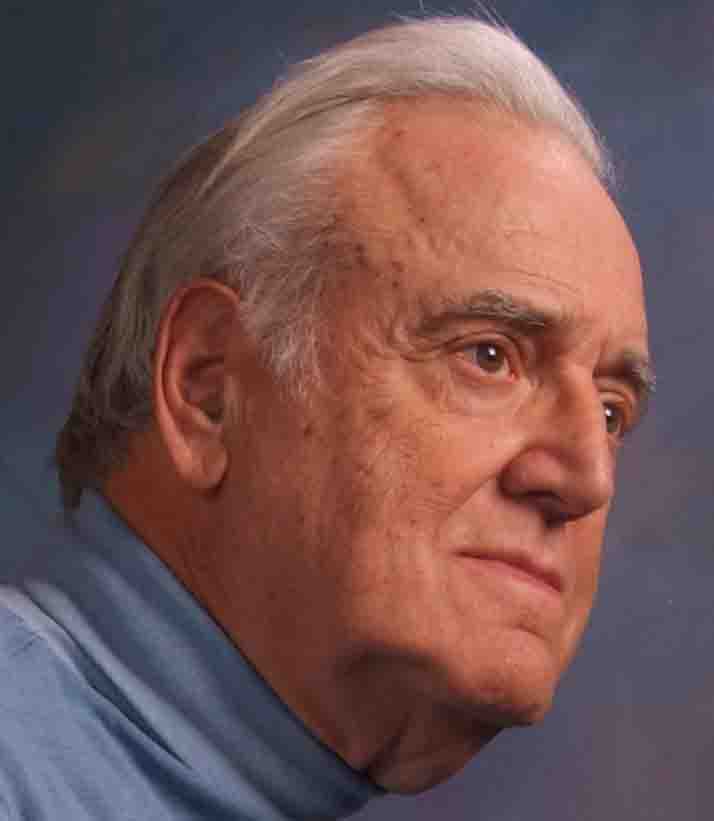There is a need to create ideals even when you can't see any route by which to achieve them, because if there are no ideals then there can be no hope and then one would be completely in the dark, in a hopeless blind alley.
Andrei Sakharov
Peace, progress, human rights. These three goals are indissolubly linked. It is impossible to achieve one of them if the others are ignored.
Andrei Sakharov
Nobel Prize Speech, 1975
Incomprehensible! And so we are a nation in denial.
Many admirable individuals, too numerous to mention, have spoken up in protest against the Bushevik regime. Among them, Cindy Sheehan, Ray McGovern, Joe Wilson, Jack Murtha, Robert F. Kennedy, Jr., the seven retired generals who demanded the resignation of Donald Rumsfeld. Add to these the progressive bloggers in that last vestige of our "free press," the internet. Worthy individuals all. But none of these have put themselves in grave peril. They are, at this moment at least, still free to dissent and then be ignored by the mainstream media. They are safe. But so too, apparently, is the target of their protests, the Bush regime.
The opposition to Bushism is weak, inchoate, disorganized and unfocused. And it apparently is without a political party to advocate its message since, it seems, the "official" Democratic Party, with a few honorable exceptions within, is content to serve as a junior partner in what has effectively become a one-party state.
So where, at this perilous moment in the history of the United States, are our heroes - men and women of moral vision, extraordinary courage and unyielding integrity, who will put their careers, their freedom and even their very lives on the line in order to put a halt to descent of the United States into despotism? Where is our Mohandas Gandhi, our Nelson Mandela, our Martin Luther King, Jr., our Andrei Sakharov? Although many others could be mentioned, I have selected these four moral giants of the past century as exemplars of the sort of moral integrity, courage, and tactical intelligence that are so desperately needed at this darkening moment in our history.
Great crises in history have a way of producing great moral leaders, albeit not often enough. It is impossible to determine what the fate of India, South Africa, the American South and the Soviet Union might have been were it not for the inspired and inspiring leadership of these great men, but in each case the outcome would almost certainly have been much the worse for the people and for the cause of freedom. Will we, the American people, at this moment of our acute need for heroic leadership, be so fortunate as to find extraordinary men and women equal to the challenges of the time?
This question was brought vividly to my mind this past week as I watched the 1984 TV movie, "Sakharov," with Jason Robards in the title role, and Glenda Jackson as his wife, Elena Bonner. It is a superb portrayal of Sakharov and Bonner and meticulously accurate as to the events and even the published words of Sakharov. Many of those words in the screenplay are by Sakharov himself, taken, verbatim, from the out-of-print book, Sakharov Speaks, edited by Harrison Salisbury and published in 1974. The scene depicting Sakharov's encounter with the state prosecutor is drawn from Sakharov's own written recollection.
But that splendid movie presents two acts of a three-act drama, as it closes with Sakharov and Bonner exiled to the industrial city of Gorky, where they resided, incommunicado, when the movie was released in 1984. The final act was both a triumph and a tragedy, as Sakharov was released from exile in 1986 by Mikhail Gorbachev and returned in triumph to Moscow. Soon thereafter he was elected to the Council of Deputies and became a leader of the liberal opposition. In December, 1989, shortly after completing a draft constitution for a free and democratic Russia, Sakharov died at age 68. At his funeral, his widow, Elena Bonner said to Gorbachev: "I pity you, for you have lost an honest critic."
Russian sociologist and dissident, Tatyana Zaslavskaya, said this of her fallen colleague:
Sakharov was the only one of us who made no compromises.... For us, he was a figure of the inner spirit. Just the bare facts of his life, the way he suffered for all of us, gave him an authority that no one else had. Without him, we could not begin to rebuild our society.
And in an interview on National Public Radio in November, 2001, Vladimir Putin responded to a caller's question with this tribute:
At certain periods of time in the life of any nation, there will be people who turn on the light, if you will. They show a road for the nation to follow. Andrei Sakharov was one of those people: a visionary, someone who was able not only to see the future, but to articulate his thoughts, and to do so without fear.
(Note: You can view every article as one long page if you sign up as an Advocate Member, or higher).





